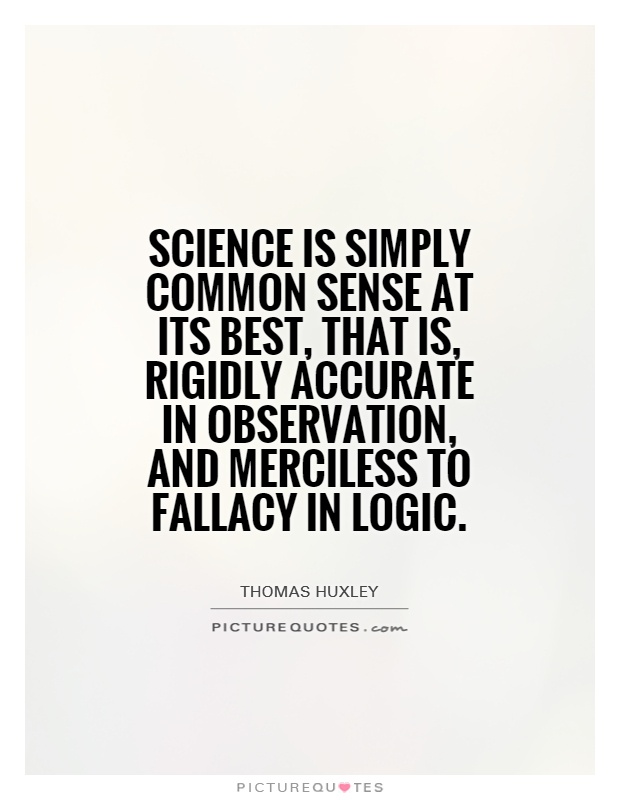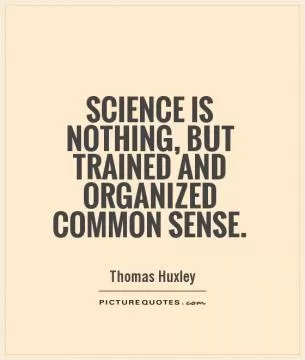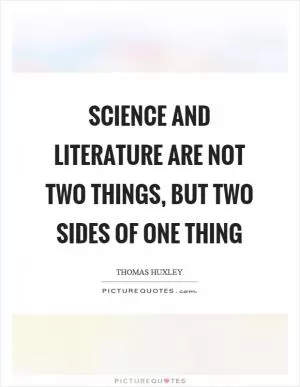Science is simply common sense at its best, that is, rigidly accurate in observation, and merciless to fallacy in logic

Science is simply common sense at its best, that is, rigidly accurate in observation, and merciless to fallacy in logic
Thomas Huxley, also known as "Darwin's Bulldog," was a prominent English biologist and advocate for Charles Darwin's theory of evolution. Huxley was a firm believer in the power of science and the importance of using rigorous observation and logic to uncover the truths of the natural world. His famous quote, "Science is simply common sense at its best, that is, rigidly accurate in observation, and merciless to fallacy in logic," encapsulates his approach to scientific inquiry.Huxley believed that science was not just a collection of facts and theories, but a way of thinking and approaching the world. He saw science as a tool for uncovering the underlying principles that govern the natural world, and he believed that these principles could only be discovered through careful observation and logical reasoning. In this sense, Huxley saw science as a form of common sense taken to its highest level, where observations were made with precision and logic was used to eliminate errors and fallacies.
Huxley's emphasis on the importance of accurate observation and logical reasoning was a reflection of his commitment to the scientific method. He believed that science was a process of trial and error, where hypotheses were tested against empirical evidence and only those that stood up to scrutiny were accepted as true. Huxley was known for his rigorous approach to scientific inquiry, and he was not afraid to challenge established beliefs or question conventional wisdom if the evidence did not support them.
Huxley's commitment to accuracy and logic in science was also a reflection of his belief in the power of reason and rationality. He saw science as a way of understanding the world that was based on evidence and logic, rather than superstition or dogma. Huxley believed that by using reason and logic, humans could uncover the truths of the natural world and improve their understanding of the universe.












 Friendship Quotes
Friendship Quotes Love Quotes
Love Quotes Life Quotes
Life Quotes Funny Quotes
Funny Quotes Motivational Quotes
Motivational Quotes Inspirational Quotes
Inspirational Quotes